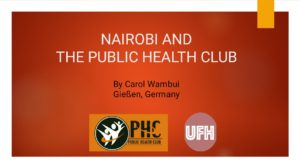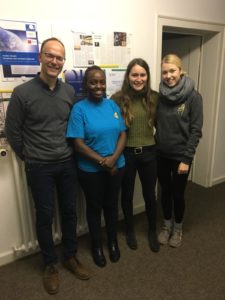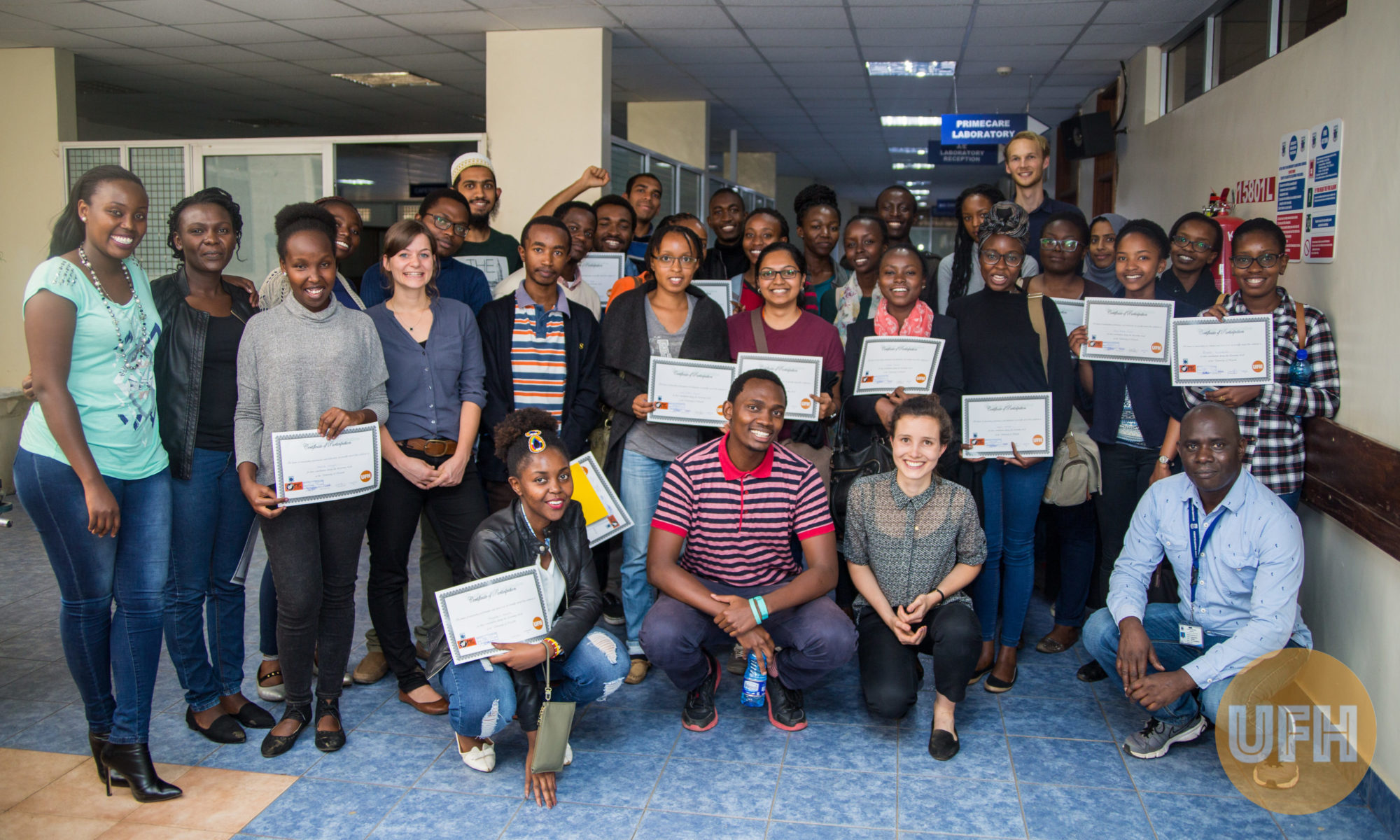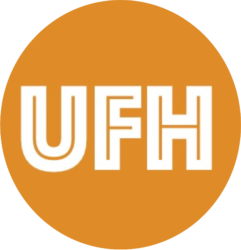‘Habari yako’ was the first thing I heard from Judith Beck and Leon Foltan when I arrived at the Justus-Liebig-Universität(JLU) Gießen, Germany. Judith and Leon, vibrant medical students at Justus-Liebig-Universität Gießen(JLU), are part of the Schwerpunktcurriculum(SPC) Global Health at JLU coordinated by Dr Michael Knipper. The SPC Global Health curriculum is a comprehensive teaching program that integrates international perspectives and activities systematically into the clinical years of the medical curriculum for the purpose of internationalizing medical education. To achieve this, the students in the SPC curriculum have medical electives/internships in different countries during their medical studies and gather at the international afternoon at Gießen to share their experiences.

During this international afternoon, I had the opportunity to share a talk about ‘Nairobi and the Public Health Club’ which is a student-driven club at the College of health sciences, University of Nairobi, Kenya. The Public Health Club, under the leadership of Dr Tom Olewe and Gillian Odongo, a 5th year medical student, organizes activities for medical students at the College of Health Sciences, University of Nairobi to build their capacity on global health matters as well as to give the students an opportunity to be actively involved in solving health problems in the community. The Public Health Club is greatly supported by an organization called Unified for Health which endeavors to support the goals declared by the World Health Organisation on Universal Health Coverage(UHC) through its projects such as public health exchanges and Global Idea labs (Workshop events on various topics such as antimicrobial resistance and much more). In the past, the Public Health Club has held oral health campaigns, public health leadership trainings, diabetes screening campaigns and team building activities for its members. The Public Health Club continues to involve medical students at the College of Health Sciences, University of Nairobi in improving the health status of the community.

Among the students who also shared their experiences in different countries was Janina Pietzonka who spoke about her internship in the Accident and Emergency department of a military hospital in Peru. She noted that Global Health is not only about pointing out and focusing on the differences in health systems between different countries but also to show their similarities towards achieving Universal Health Coverage. Mariame Sow elaborated about the success of a project she’s currently involved in to build toilets in schools in Senegal because where schools lack proper toilets, the girls are unable to go to school during their menstrual period. Jan Kleefeldt talked about his experience in Spain and his interaction with other foreign students, Hannah Fulbert spoke of the doctor-patient interactions she observed in France while Suzanne Menzel shared about her clerkship at the Obstetrics and Gynaecology department in a county hospital in Kenya.

In the spirit of Christmas, SPC global health held a Christmas party in the evening with the beautiful Adventskranz and Schwibbogen decorations. There, I interacted with the warmhearted students at Justus-Liebig-Universität Gießen where we exchanged ideas on global health as well as the beauty of our diverse cultures. Surrounded by smiles and laughters of the students at Gießen, I had the awesome opportunity to try out German dishes for the very first time, such as puff pastry mushroom parcels, doner kebap, bread with dips of hummus and dates, couscous salad, Feuerzangenbowle as well as Punsch.

My experience at the international afternoon held at Justus-Liebig-Universität Gießen opened my eyes to the importance of global health and internationalization of medical education through the increased mobility of medical students and professionals, teaching collaborations in medical education and the possibilities of international research. The benefits include training medical students on transdisciplinary thinking, communication and collaboration with a broader view on health and medical care that complements the rather narrow focus of clinical and biomedical training. This eventually promotes informed efforts towards the betterment of patient care in the digital knowledge economy of medical practice.


![]()





